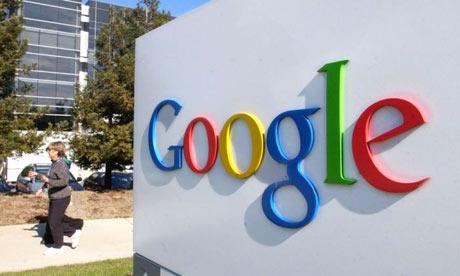
Google hopes DNA search will yield health results
pharmafile | July 27, 2014 | News story | Medical Communications, Research and Development, Sales and Marketing | DNA, calico, google, smart lens
Google is to collect samples of human tissue from thousands of people as part of an experiment that could help doctors to detect the earliest signs of cancer and other fatal diseases.
The US firm’s so-called ‘Baseline Study’ will also take blood, urine, saliva and DNA samples to determine what makes up a healthy human being, according to the firm.
The aim is to examine the genetic history of subjects’ parents, the speed of their heartbeats and how they metabolise food and drugs.
Scientists will then run the test data through Google’s complex computer algorithms to detect biomarkers.
These indicators of a certain biological state within the body can be used to detect the onset of disease and builds on the biomarker work pharma has been developing for years.
This latest study is being run by Google’s experimental ‘X’ laboratory, the same facility which is developing a new ‘smart lens’ device to monitor the blood sugar levels from the tears of diabetes patients.
The product, which is still in a prototype form, is being commercialised by Swiss giant Novartis.
The Baseline test data for the DNA search will be anonymised, private and limited to use for medical purposes, Google says. The company also promises that it would not share the information with insurance companies.
Baseline will be run by Andrew Conrad, a molecular biologist who joined Google X in March last year.
Since his appointment Conrad has hired around 100 experts in fields such as optics, biochemistry and physiology to conduct the research.
He says: “With any complex system, the notion has always been there to proactively address problems. That’s not revolutionary. We are just asking the question, ‘If we really wanted to be proactive, what would we need to know?’ You need to know what the fixed, well-running thing should look like.”
Google has not set any restrictions on the diseases that will be covered by the trial, which is still at an early stage.
Medical review boards from Duke University and Stanford University will oversee the research when the study begins. A pilot test with 175 subjects will be extended to include thousands more in the coming months.
Healthy future
Google is taking deeper inroads into health with this the latest in a string of medical related developments.
This also comes nearly a year after the launch of its new Calico health division that is being led and invested in by Arthur Levinson, chairman and former chief executive of Genentech and current chairman of Google’s commercial rival Apple.
Speaking at the time of its launch last September Larry Page, Google’s chief executive, explained: “Illness and aging affect all our families. With some longer term, moonshot thinking around healthcare and biotechnology, I believe we [Google] can improve millions of lives.”
Ben Adams
Related Content

Touchlight completes expansion of one of world’s largest DNA manufacturing facilities in London
Touchlight, a company that focuses on pioneering enzymatic DNA production, has announced that it has …

Google accused of profiting from misleading dementia supplement ads
Google has been accused of profiting from false hope after running adverts for unproven dementia …

CRISPR gene editing may frequently cause undetected genetic damage
Scientists studying the gene editing technology CRISPR-Cas9 have discovered the technique appears to frequently cause …








